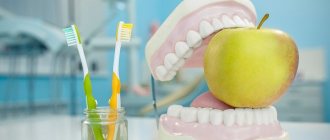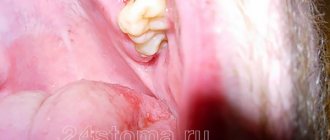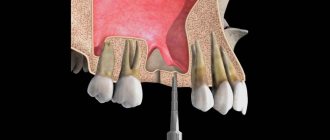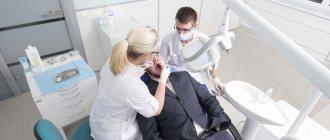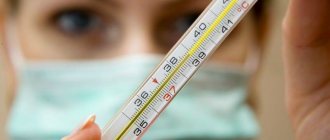Bile is produced in the liver, accumulates in a special physiological container (gall bladder, gallbladder) and is supplied with the help of sphincters and compression of the walls of the organ in the required amount through channels into the area of the opening of the 12 duodenum.
The need for resection of the gallbladder arises when stones are detected in the gallbladder or ducts, damage to the body by invasive forms, or anatomical deviations in the shape or size of the organ. After performing a surgical intervention called cholecystectomy, the body adapts to new working conditions, causing the manifestation of characteristic clinical symptoms.
At this time, the patient may encounter manifestations of the body’s reaction to the intervention, which can be divided into normal and pathological consequences. To avoid complications and minimize these reactions, after the operation is completed, the patient should ask the therapist what medications to take after removal of the gallbladder.
Purpose of the gallbladder
The organ is a reservoir intended for the accumulation of secretion produced by the liver, which has a greenish or yellowish tint, secreted in a healthy body in an amount of 500-1400 ml/day. The physical composition of bile is presented in the form of cholic, deoxycholic acids, cholesterol, phospholipids, trace elements, enzymes, urea and vitamins. Among the functions performed by the secretion, experts name:
- The action of acids that ensure the release of pancreatic juice necessary for the digestion of food.
- Ensuring neutralization of the acid reaction of the stomach contents before the components enter the duodenum.
- The emulsifying effect of acids on fats, providing the possibility of their subsequent digestion by lipase, which is part of the secretion secreted by the pancreas.
- Pepsin binding occurs with the help of proteins that make up bile.
- Ensuring partial or complete removal of medications from the group of sulfonamides, salicylates, and alkaloids.
After extirpation of the gallbladder, the normal course of the digestive process is disrupted, to compensate for changes in which the use of medications is recommended.
Indications for gallbladder extirpation
The operation, characterized by trauma, involves making incisions in the peritoneum in 4 places. This procedure is prescribed in rare cases, taking into account not only the high cost of its implementation, pain, discomfort for the patient, but also residual consequences.
These include the need for long-term medication and scars or scars remaining at the surgical site. Nevertheless, there are a number of indications, the detection of which indicates complete or partial dysfunction of the gallbladder or the possibility of potential complications. Among the situations in which cholecystectomy is prescribed, experts include:
Symptoms
After filling teeth, an unpleasant bitter taste and even a burning sensation may appear in the mouth. Sometimes the taste and smell of the medicine can be felt not only by the person himself, but also by the people around him. As a result, self-doubt and problems communicating with other people are added to the main problem. Unpleasant sensations in the mouth significantly impair the quality of life. People with an increased gag reflex cannot even drink or eat.
Many people are afraid of this situation due to the fear that the installed filling is leaking and leaking the medicine that is under it.
But this is an erroneous opinion and has no basis. Therefore, before you give in to panic, you need to figure out why the problem appeared and take measures to eliminate it.
Temporary filling always leaves a taste in the mouth
The functioning of the digestive system, symptoms and consequences of bladder removal
Normally, bile is secreted and flows through the ducts into the duodenum after the action of an irritant, which can be food intake. The rate of secretion depends on the type and quantity of food consumed. When the gallbladder is removed, the ducts ensure continuous delivery of secretions to the intestines, independent of the action of the irritant. A constant supply of the enzyme can cause a number of consequences, among which are symptoms and conditions such as:
- The accumulation of large volumes of digestive juices and their stagnation, causing irritation of the intestinal mucosa.
- Violation of the process of absorption of nutrients.
- Nausea, belching and vomiting in case of reflux of secreted secretions.
- Possibility of damage to the intestinal walls with the release of bile into the abdominal cavity.
- Disturbance of the intestinal microflora, leading to flatulence.
- The appearance of liver or intestinal colic.
- There is a danger of penetration of pigments that make up bile into the bloodstream, which can result in general intoxication of the body.
- Disruption of metabolism and metabolic processes that regulate the supply of necessary substances and fats, associated with damage to muscle tissue in the area surrounding the channels for the passage of bile into the duodenum.
- The development of inflammatory processes and dysbacteriosis associated with disruption of metabolic processes.
- Stagnation of bile, formation of stones and an increase in the likelihood of secondary development of cholelithiasis, the elimination of which in most cases is possible only with the help of surgery.
Depending on the individual characteristics of the disease, the onset of one or more of the listed conditions, called post-chocystectomy syndrome by specialists, is possible.
Surgery and the stress that follows is a normal reaction of the body to a surgical procedure. During the time required to restore the body's functioning, the patient may feel weakness, increased formation of gases, a bitter taste in the mouth and other symptoms.
How to solve a problem
Eliminating the problem depends on the reasons that caused it. If the problem is related to the installation of a temporary filling, then after it is replaced with a permanent one, the unpleasant taste in the mouth will disappear. In case of poor-quality dental treatment, the only way out of the situation is to get rid of the filling and install a new one.
Ceramic tabs almost never give off an aftertaste
You can get rid of the unpleasant taste in your mouth by rinsing with mint infusion or special pharmaceutical solutions.
But if this does not help and the taste of the medicine only intensifies, you need to visit a doctor to determine the cause of the problem.
Recommended medications after bladder removal
To minimize the consequences and eliminate the occurrence of complications after cholecystectomy, the patient must follow the recommendations of a specialist during the recovery period, which, according to gastroenterologists, takes from 1 to 3 months. During this time and, if necessary, during subsequent life, the patient is recommended to take medications that provide:
- normalization of bile production and outflow;
- relief of pain symptoms;
- relaxation of smooth muscles during spasms that occur during the release of secretions into the intestines;
- breakdown of food upon receipt after surgery of insufficient bile.
Self-prescription of drugs should be excluded, since their use may not only not lead to the desired result, but also provoke complications.
Painkillers
Since experts call pain among the most common symptoms of postcholicystectomy syndrome, antispasmodics are used to relieve such manifestations and improve the functioning of the gastrointestinal tract.
Folk remedies
After removal of the gallbladder, in agreement with the doctor and in the absence of contraindications, it is possible to use decoctions and infusions based on medicinal plants as part of therapy. Among the most popular recipes for traditional medicine, experts call:
- An infusion of corn silk, intended for cleaning the ducts for removing bile, for the preparation of which 1 tbsp of the product is poured into 200 ml of boiling water, infused for several hours and consumed after filtering, 1 tbsp (5 times during the day).
- An infusion based on bird knotweed, used to prevent the formation of stones and relieve pain. To prepare the composition, you need to pour 2 tablespoons of the crushed plant into 0.5 liters of boiling water, then boil for 2-3 minutes, leave for 3-4 hours and drink 0.5 cups 20 minutes before meals three times a day.
- An infusion based on a collection of herbs used to normalize the general condition of the gastrointestinal tract after extirpation of the gastrointestinal tract, which has sedative, analgesic and antispasmodic effects. To prepare it, you need to mix 2 parts of calendula flowers and St. John's wort, 1 part of valerian and chamomile root with 3 parts of immortelle. The prepared mixture is poured into 200 ml of boiling water, infused for 60 minutes, and consumed after straining, 1 glass before meals.
A gastroenterologist may recommend the inclusion of these drugs in the treatment in order to prevent the re-formation of stones and prevent the formation of stagnant zones in the area of the ducts for excreting bile.
Causes
This situation appears under the influence of various factors. Common causes of burning, unpleasant taste and bitterness in the mouth:
- Low quality medicines. Some specialists, in order to reduce the cost of their services, use cheap materials and products that have an unpleasant taste. Therefore, it is necessary to first check with a specialist what materials he will use in his work.
High-quality medicines show less symptoms
- Allergic reaction. Allergies to mucous tissues can occur to medications and filling materials. A person feels swelling of the mucous tissues, discomfort and that the mouth smells like medicine. You can only figure out what caused this problem with the help of a qualified specialist. The doctor will identify the allergen and take measures to eliminate it. You should not self-medicate with antihistamines. Because if a reaction occurs to the filling material, the problem will go away on its own after the filling is removed.
- Sores on mucous tissues. Microtraumas often occur in the oral cavity during therapeutic procedures. An infection gets into the wounds and the inflammatory process and stomatitis begin to develop. With herpetic stomatitis, bubbles with liquid appear, which increase in size, burst and erosions appear in their place. There is a burning sensation and pain in the oral cavity.
- An unpleasant aftertaste of medicine in the mouth after dental treatment and bitterness occur if the installed permanent filling does not cover the tooth airtightly. In such a situation, other unpleasant symptoms may occur: tooth sensitivity and pain.
- Sometimes the problem appears when a temporary filling is installed. Most medications and antiseptics used in dentistry have a specific and unpleasant taste. Therefore, it is normal to feel a taste of the medicine for several days after dental filling.
Sometimes an unpleasant aftertaste of medications may appear several years after dental treatment.
Amalgam filling adds a metallic taste
This happens when a filling cracks or comes off. In this case, over time, toothache will appear, and the tooth itself will decay. Therefore, you need to regularly visit the dentist in order to promptly identify dental problems and eliminate them.
Recommendations regarding nutrition and lifestyle
In addition to the therapeutic effects after surgery, the patient is recommended to follow a number of measures. Their implementation will facilitate the rehabilitation period and eliminate the formation of stones in the future. Among such recommendations, experts include the following activities:
- switching to a diet that excludes salty, fatty and fried foods; foods such as eggs, rye bread, and sunflower oil are excluded from the diet;
- adjusting the diet taking into account the need for easily digestible foods in the body;
- quitting smoking and drinking alcohol;
- providing dosed nutrition, including taking small portions 5 times a day, eliminating the possibility of overeating;
- exclusion of lying on the left side or stomach;
- timely completion of routine examinations and immediate consultation with a doctor if alarming symptoms occur.
Compliance with these measures is the key to the success of therapy carried out with drugs and traditional medicine.
After extraction of the gallbladder, it is necessary to ensure the normalization of the functioning of the gastrointestinal tract. For this purpose, doctors prescribe therapy, including the use of medications, herbal decoctions and infusions, while simultaneously observing the rules of rehabilitation.
https://www.youtube.com/watch?v=P8ZDMezif4U
Precautionary measures
To prevent problems after dental treatment and filling, you must follow some rules. Brush your teeth with a soft bristle brush and rinse your mouth after every meal. Try not to put any strain on the treated tooth and chew food on the other side of your mouth. There is no need to test the filling material for strength and put pressure on it. You will also have to temporarily stop eating solid foods (nuts, candies), chewing gum and caramels.
It is important to promptly identify the causes of unpleasant taste in the mouth and eliminate them. This will ensure good dental health and no future dental problems.


